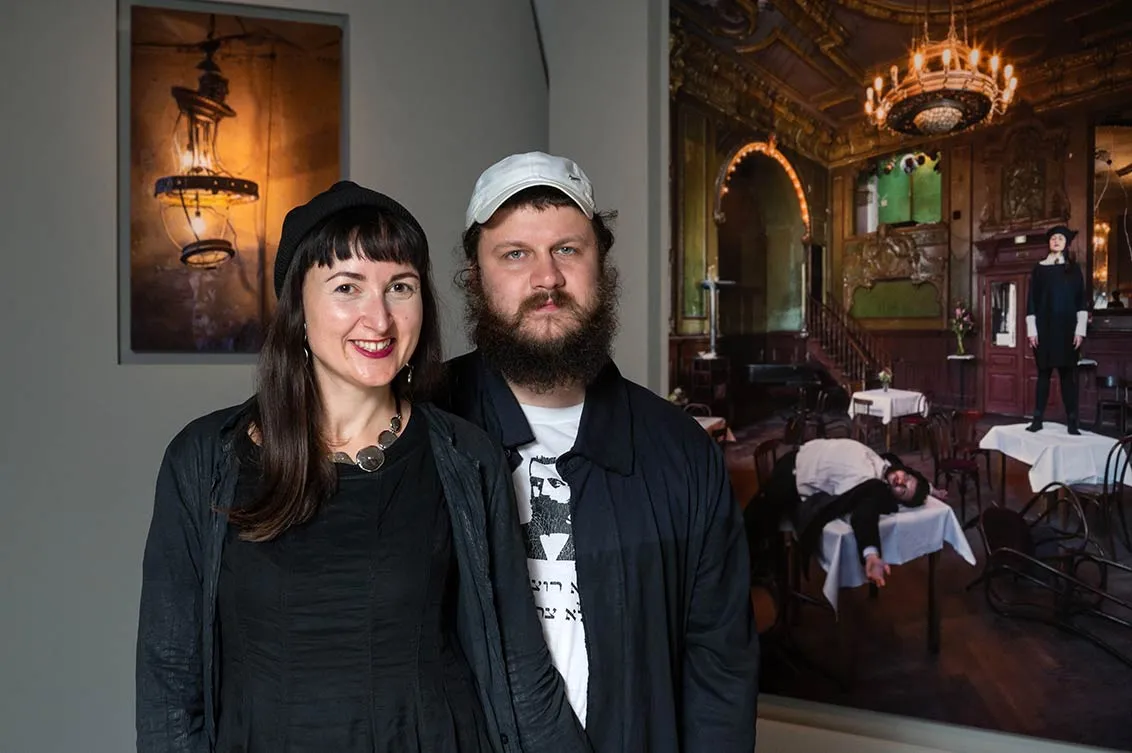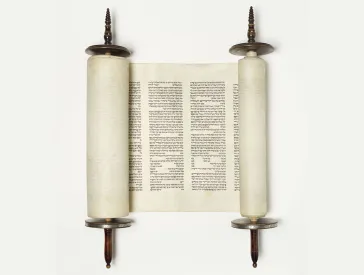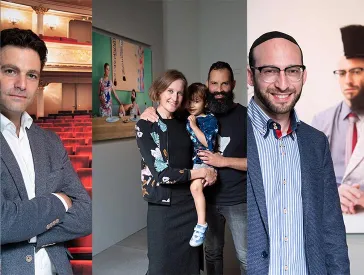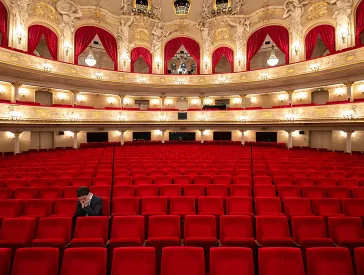Anastassia Pletoukhina and Valentin Lutset
Interview and Photo from the Frédéric Brenner – ZERHEILT: HEALED TO PIECES Exhibition Opening

Anastassia Pletoukhina and Valentin Lutset at the exhibition ZERHEILT: HEALED TO PIECES; Jewish Museum Berlin; photo: Jule Roehr
We are Anastassia Pletoukhina and Valentin Lutset, a Jewish activist from Charlottenburg.
Where did the idea for your portrait’s staging and setting come from?
Anastassia: Frédéric and I met at the Literaturhaus on Fasanenstrasse and immediately found a lot in common. I knew right away that Frédéric had to meet my husband. And my instinct was absolutely right. That’s how our friendship was born and thus also the portrait. When Frédéric, Oren, and the two of us were thinking about where our portrait could be taken, Frédéric and Oren unanimously exclaimed: “You’re both so Clärchen!” [Clärchens is a historic ballroom in Mitte.] When we got there for the shoot, we were blown away by the magic of the Mirror Room.
Valentin: Frédéric suggested the location. It was very special to be there at that gloomy place and to pursue that process with him. At some point he just wanted us to pose the way we actually act amongst ourselves, and that’s how the photo came about.
How do you experience Jewish life in Berlin?
Valentin: Its life is just starting.
Anastassia: Jewish life in Berlin is multifaceted and colorful. It hasn’t always been that way and it doesn’t go without saying. The city itself is very, very open and you can find a space and a community for any possible configuration of Jewish life. Berlin today is a good place for experimenting and for delving into different worlds of Jewish life. Yet that plurality is only truly possible and sustainable if people listen to each other and treat each other respectfully as equals.
Describe your life in Berlin in three adjectives.
Anastassia: Multifaceted. Community-based. Future-facing.
Valentin: Active. Activism. Activated.
What would your wish be for the future of Jewish life in Berlin?
Anastassia: I wish for myself and the community in Berlin and Germany to have Sicherheit in all the many senses of that versatile word. The self-confidence to be able to explore one’s own Judaism and find one’s own path. The assurance for members of communities to express their Jewishness in ways that resonate with their sense of self. The security to be present in public space and to be able to move around visibly as a Jew. I wish for the certainty of knowing that there will continue to be many manifestations of Jewish life in the Berlin of the future.
Valentin: More kosher donuts! And not only during Hanukkah season!
From the photographic essay ZERHEILT: HEALED TO PIECES by Frédéric Brenner; Jewish Museum Berlin, purchased with the support of the Friends of the Jewish Museum Berlin
Citation recommendation:
Jewish Museum Berlin (2021), Anastassia Pletoukhina and Valentin Lutset. Interview and Photo from the Frédéric Brenner – ZERHEILT: HEALED TO PIECES Exhibition Opening.
URL: www.jmberlin.de/en/node/8517


